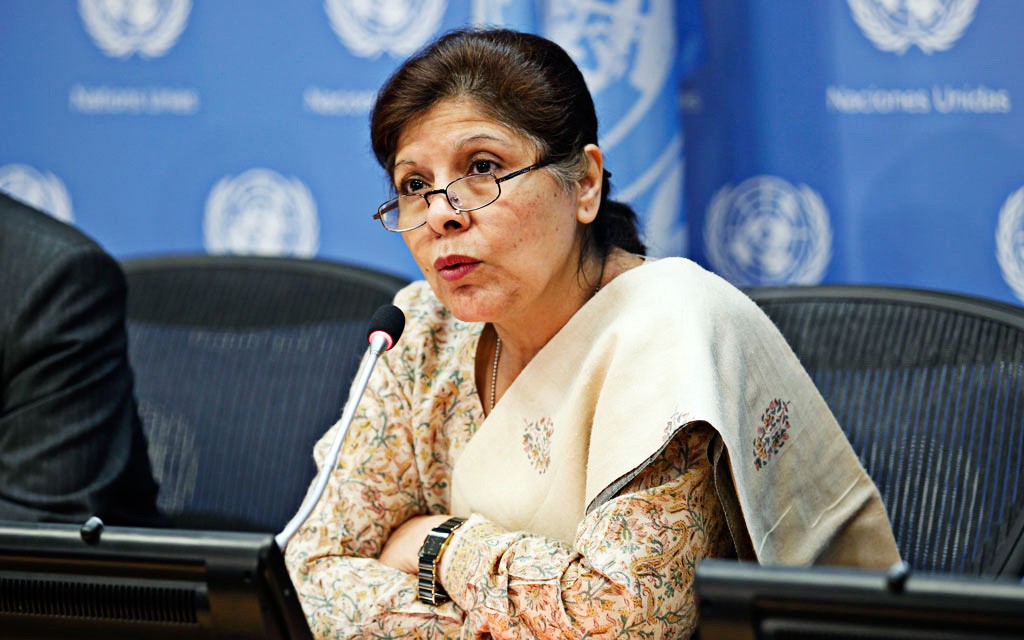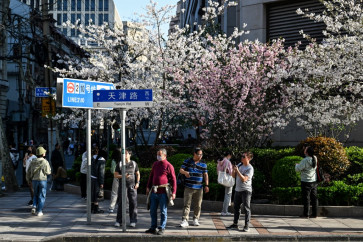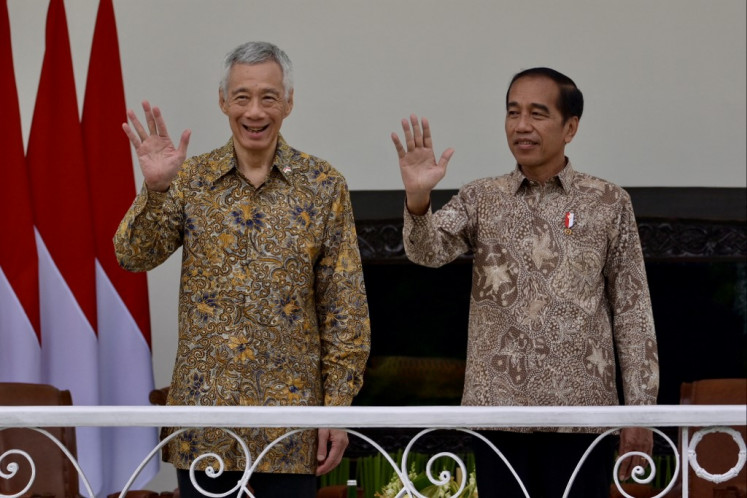Increasing productivity key to revive economic growth, says UN
Change Size
 Steady growth -- UN Under Secretary General and ESCAP Executive Secretary Shamshad Akhtar speaks in a UN forum. (Courtesy of un.org/-)
Steady growth -- UN Under Secretary General and ESCAP Executive Secretary Shamshad Akhtar speaks in a UN forum. (Courtesy of un.org/-)
T
he next phase of Asia-Pacific economic growth should be driven by broad-based productivity gains as nations in the region begin implementing the 2030 Agenda for Sustainable Development, the United Nations (UN) says in its recently released flagship publication.
The UN Economic and Social Commission for Asia and the Pacific (ESCAP) emphasizes in the Economic and Social Survey for Asia and the Pacific 2016 that the growth will require higher, targeted fiscal spending, enhanced skills, better infrastructure, and improved agricultural productivity.
According to the Survey, annual average growth of total factor productivity in the developing countries of Asia and the Pacific declined from 2.8 percent in 2000-2007 to just below one percent in 2008-2014.
“The productivity slowdown accounts for almost a fifth of the recent economic slowdown, from an average of 9.4 percent during 2005-2007 to an estimated 4.6 percent growth in 2015,” the report says.
This is a concern because sustained and resilient economic and productivity growth, backed by balanced economic, social and environmental development, is a prerequisite for successful implementation of the 2030 Agenda, ESCAP says.
UN Under Secretary General and ESCAP Executive Secretary Shamshad Akhtar emphasized that steady growth in real wages, which was critical for tackling poverty and inequality, as well as supporting domestic demand, also ultimately depended on productivity growth.
“Concerted efforts are needed to revive the region’s economic dynamism and more effectively pursue the 2030 Agenda,” said Akhtar.
“Such interventions, particularly through fiscal measures, could support not only domestic demand but also strengthen the foundations for productivity-led growth, while fostering real demand through social safety nets and wage increases,” she went on.
Akhtar said the Asia-Pacific region had the means and dynamism to revive economic growth. “Improving the quality of this growth by making it more inclusive and sustainable, will be especially demanding,” she explained.
The Survey calls for continued rebalancing towards domestic and regional demand, as prospects for export-led growth remain subdued. A confluence of macroeconomic risks including shifts in global financial and commodities cycles has also increased uncertainty. Despite emerging challenges, the Survey says the region’s economic outlook is broadly stable and forecasts a moderate pickup in economic growth in developing Asia and the Pacific to 4.8 percent in 2016 and 5 percent in 2017.
It is further revealed that progress in reducing poverty is slowing and inequalities are rising in much of the region. At the same time, an expanding middle class and rapid urbanization are posing complex economic, social, environmental and governance challenges.
The report says the region also faces increased financial volatility and capital outflows, which have limited the space for monetary policy manoeuvring, despite low overall inflation. Several countries are also experiencing a private debt overhang after rapid increases in household and corporate leverage in recent years.
“If the region is to shift to a more sustainable development strategy driven by domestic demand, greater focus must be placed on productivity along with commensurate increases in real wages,” ESCAP says.
It later says a productivity-driven, wage-led approach would enable countries to increase their aggregate supply and demand, thereby enhancing well-being.
The Survey recommends a cross-sectoral and integrated approach to boost productivity. It says several countries in the region are deindustrializing too early in their development, by shifting from agriculture-based economies to ones in which services play a dominant role. With more than half of the region’s population living in rural areas, and four out of ten workers engaged in agriculture, efforts should instead be strengthened to boost agricultural productivity and foster rural industrialization and urban-rural linkages.
The Survey estimates that a modest increase in agricultural productivity could lift an additional 110 million people out of poverty by 2030, but that improvements in knowledge and skills will be critical, to enable absorption of the large pools of surplus labor that are being released in the rural sector.
“Fiscal initiatives should be underpinned by sustained reforms towards an efficient and fair tax system that delivers the necessary revenues and promotes equity,” Akhtar emphasized. The year-end update of the Survey will be released in November 2016. (ebf)









